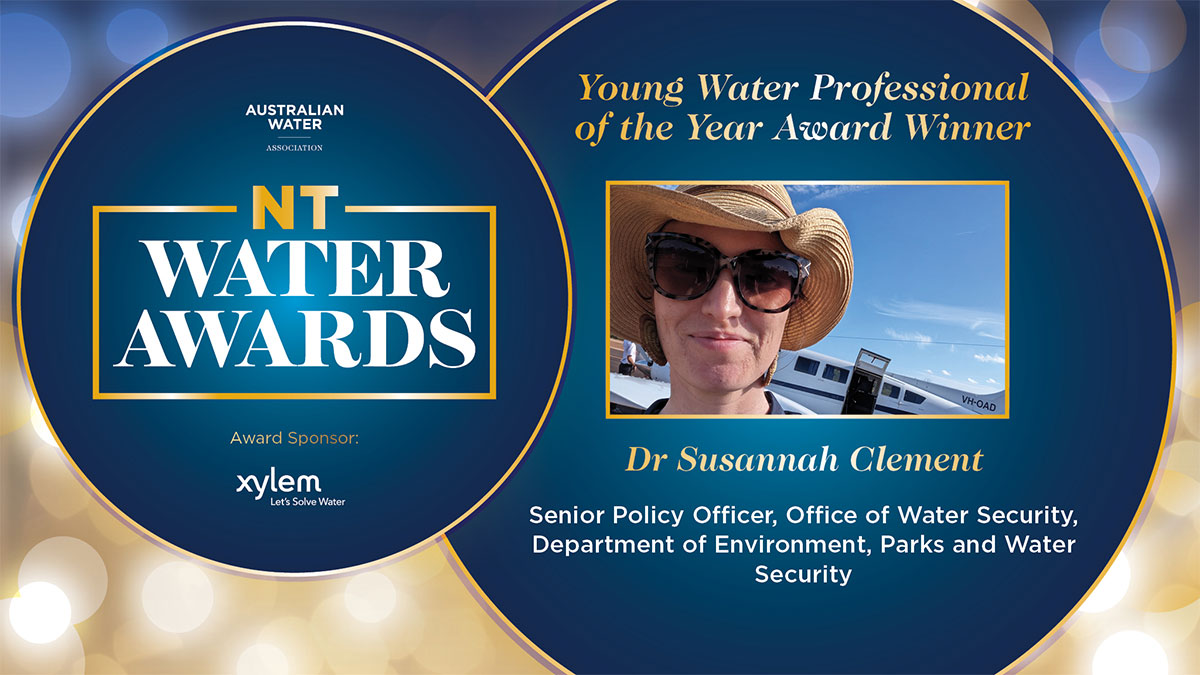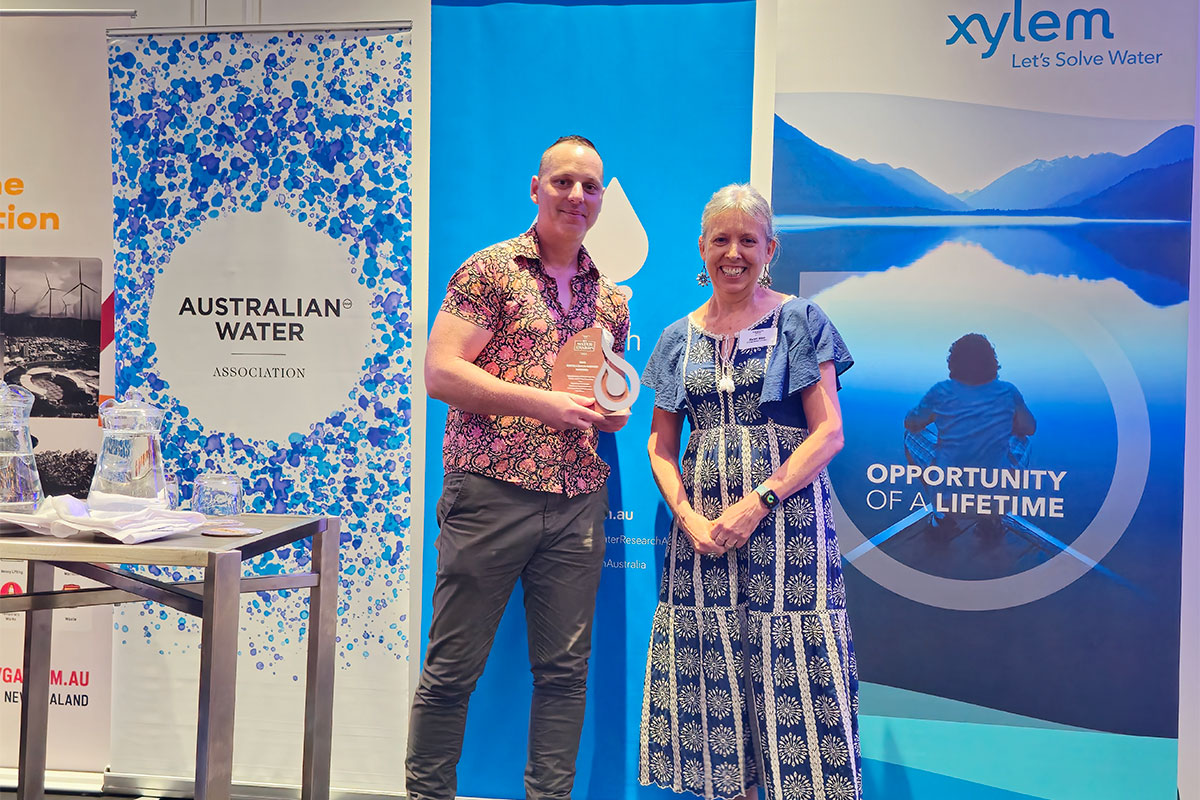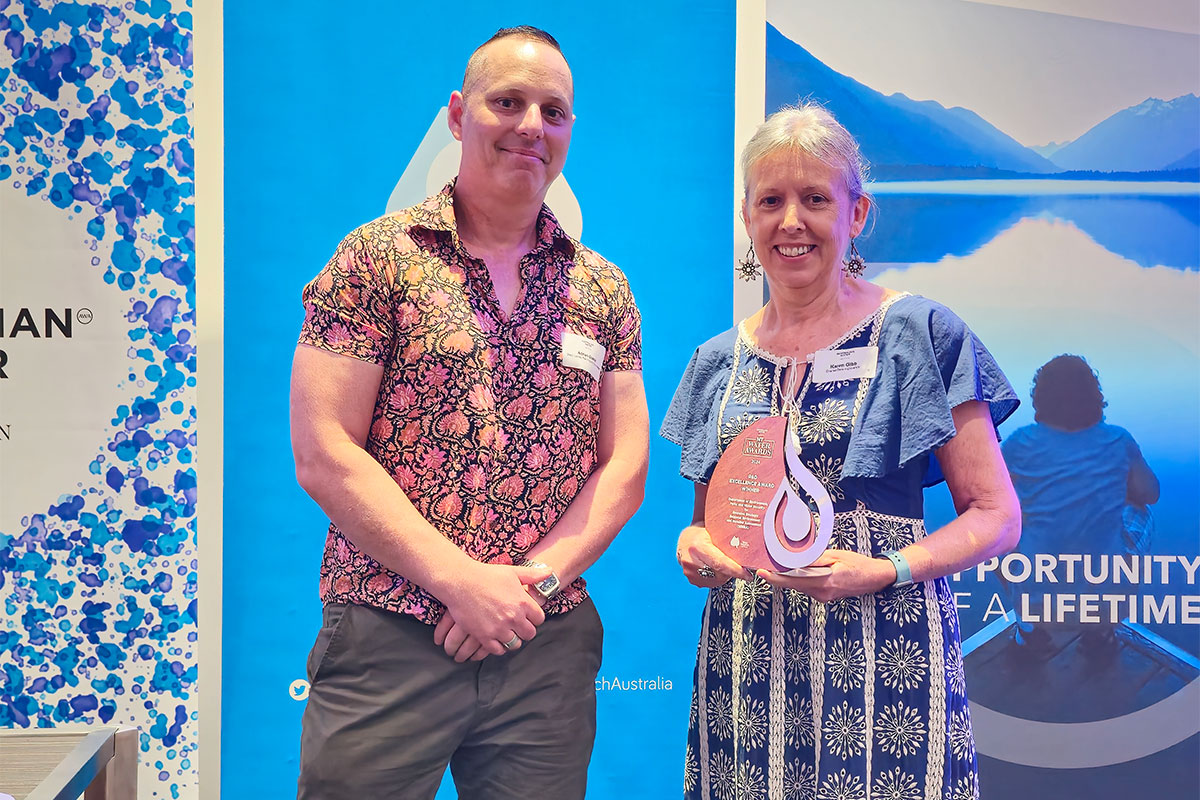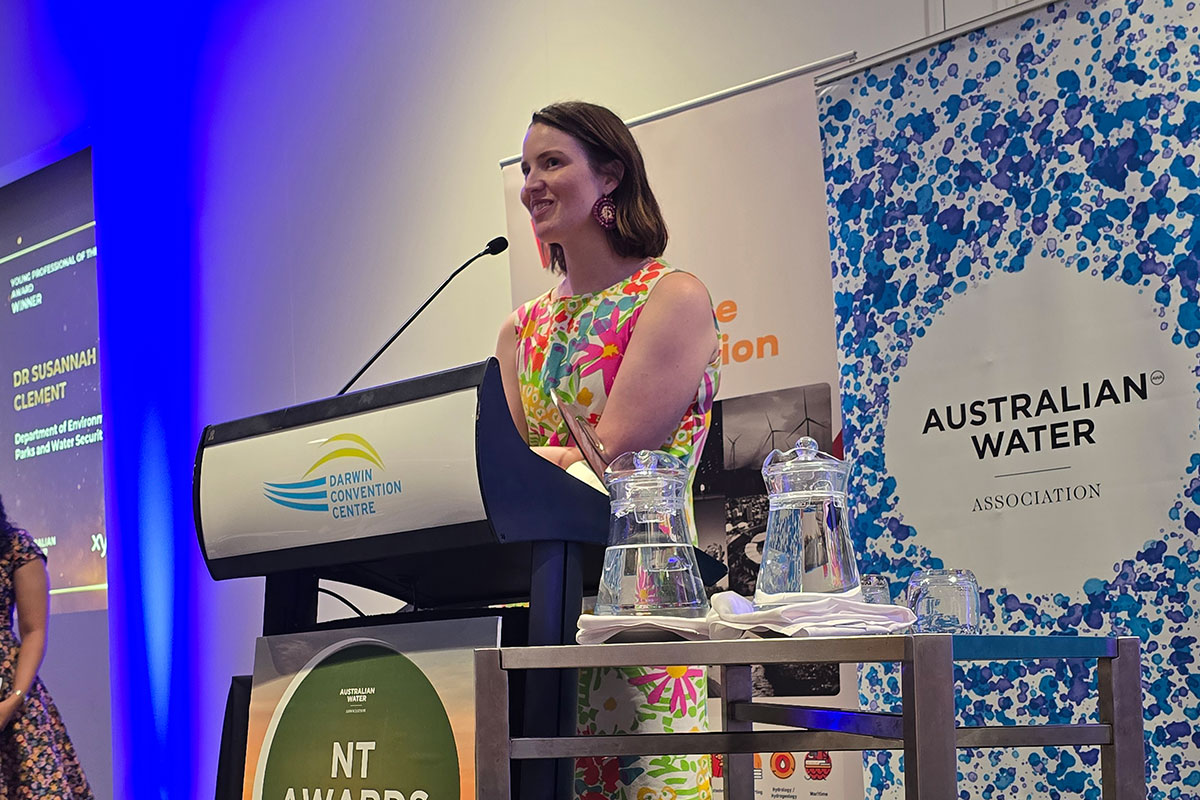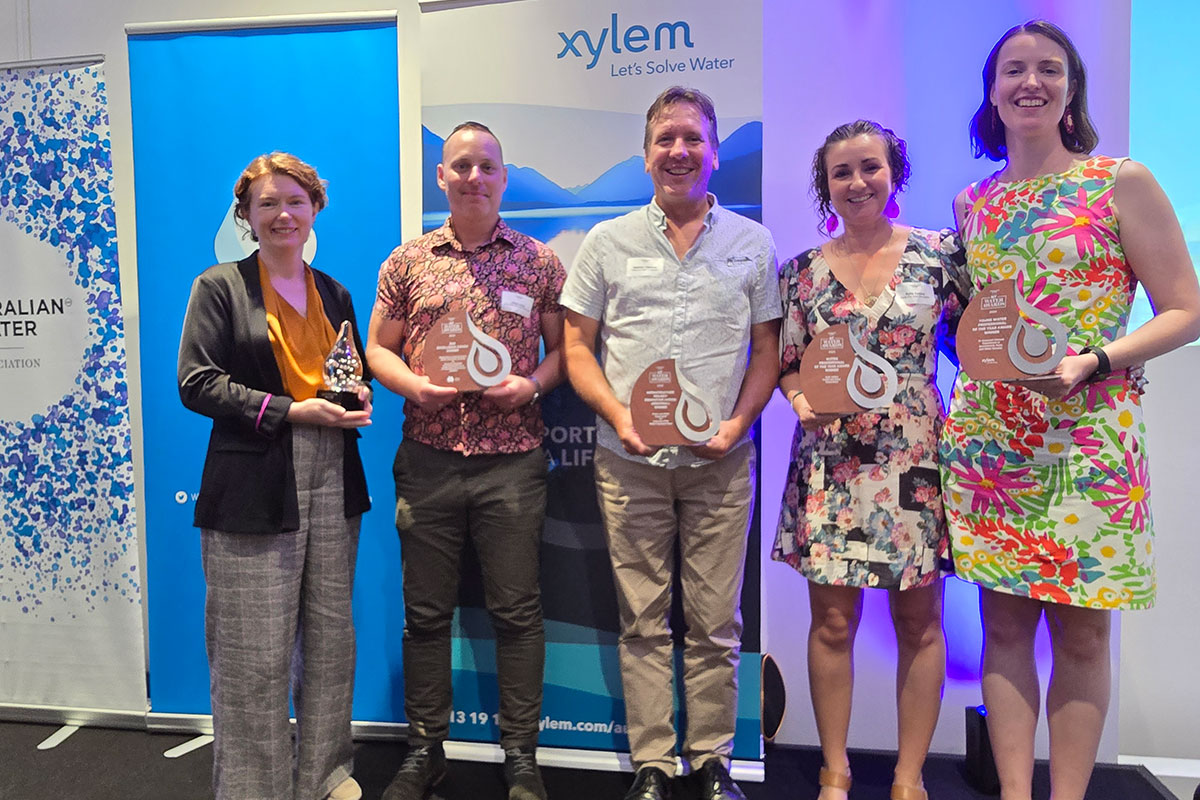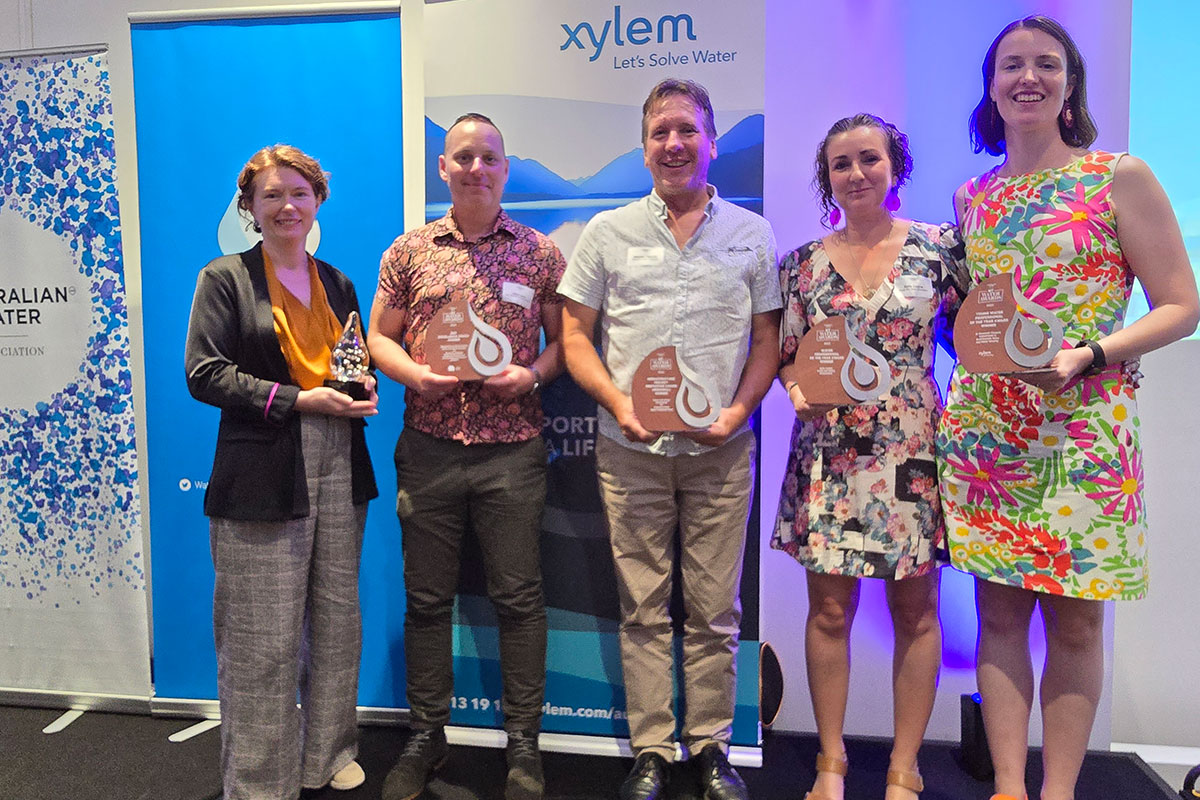Water Resources wins research and development award at Australian Water Awards
As the Northern Territory’s premier annual water conference, the Strategic Regional Environmental and Baseline Assessment (SREBA) water studies took the Research and Development Award for 2024. It is the second award in 12 months for the SREBA, which focused specifically on the water studies work led by Water Resources.
The SREBA for the Beetaloo Sub-basin, released in 2023, is the most comprehensive regional baseline environmental assessment ever undertaken in Australia, with a major focus on understanding the groundwater resources in the region. The SREBA involved over 4 years of work with more than 100 participants from multiple research organisations, led by a small team within the Northern Territory’s Department of Lands, Planning and Environment (former Department of Environment, Parks and Water Security).
The SREBA was a prominent element in completing the implementation of recommendations from the Scientific Inquiry into Hydraulic Fracturing (the Inquiry), an essential pre-requisite to unlocking the economic potential of onshore gas for the Northern Territory. It has accelerated acquisition of data and knowledge of water resources across a large area of the Northern Territory.
While most of the work encompassed a study area of 86,400 square kilometres (20% larger than Tasmania), the water studies examined the hydrogeological processes of a more extensive area spanning more 200,000 square kilometres across the Northern Territory.
The primary focus for the water studies was the Cambrian Limestone Aquifer, which represents one of the most extensive groundwater resources suitable for large scale irrigation and agricultural development. At a broad-scale it included the investigation of baseline groundwater levels and water quality; aquifer parameters and aquifer inter- and intra-connectivity; characterisation of recharge and surface water-groundwater interactions; characterisation of surface water resources; and upgrading existing coupled surface water-groundwater models. Specifically the studies integrated and reinterpreted existing data as well as a substantial collection of additional data and work including drilling and constructing 23 new groundwater bores (totalling some 3,000 metres of drilling) for monitoring and testing; installation of continuous groundwater level loggers in 30 bores; additional water quality sampling and analysis from 20 bores. Charles Darwin University contributed a desk-based assessment of actual evapotranspiration fluxes using remote sensing and isotopic studies to help clarify groundwater-surface water interactions, while thehe National Centre for Groundwater Research and Training conducted a review of groundwater quality data across the region.
The knowledge gained from the SREBA was directly translated and ensured a sustainable water future through development of water allocation plans for the region, such as Georgina Wiso, to provide for the protection, allocation and management of the Cambrian Limestone Aquifer. The SREBA also identified the outstanding ecological and cultural values associated with the Roper Discharge Zone, with the draft plan proposing to protect these values while allocating water to continue agricultural and other uses in Roper River catchment.
The SREBA water studies published over 15 technical reports and papers describing different components, in addition to the Water Quality and Quantity Baseline Summary report, and summary chapters within the SREBA Regional Report. As a result of the project, the groundwater resources in the Beetaloo sub-Basin – particularly the Cambrian Limestone Aquifer which is the most important for people, industry and the environment – are the most comprehensively studied and documented within the Northern Territory.
The SREBA Water Studies will now represent the Territory as a finalist at OzWater’25 to be held in Adelaide 20-22 May 2025.
For more information on SREBA Beetaloo Sub-basin Research Presentation - YouTube
Or on Strategic Regional Environmental and Baseline Assessment (SREBA) or data catalogue, go to the SREBA Data Catalogue website.
